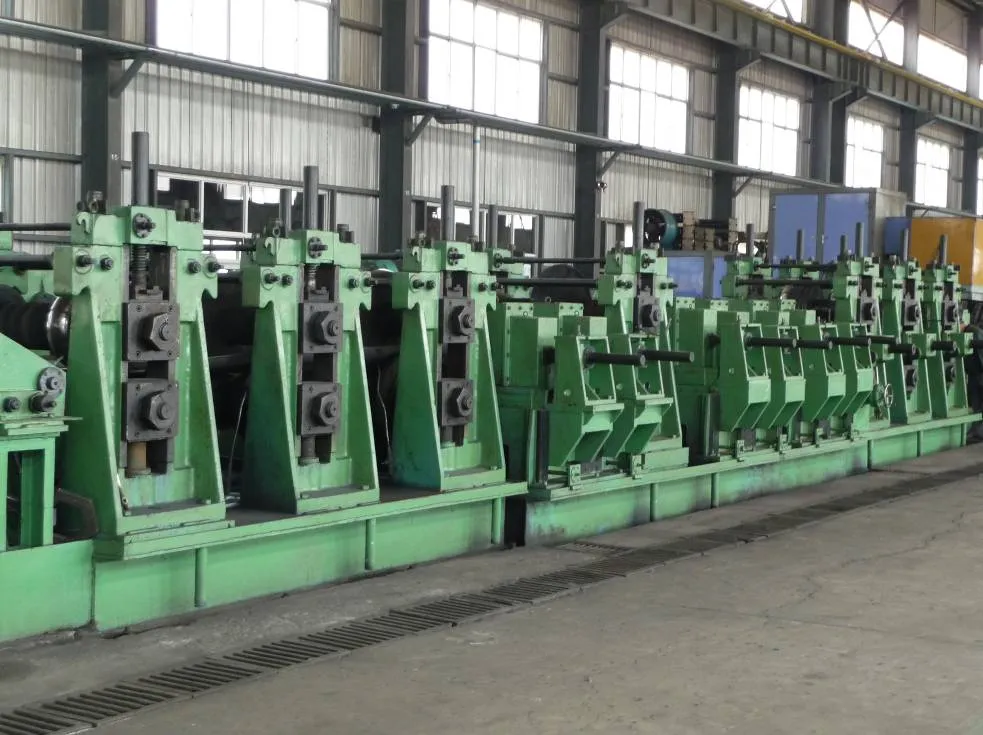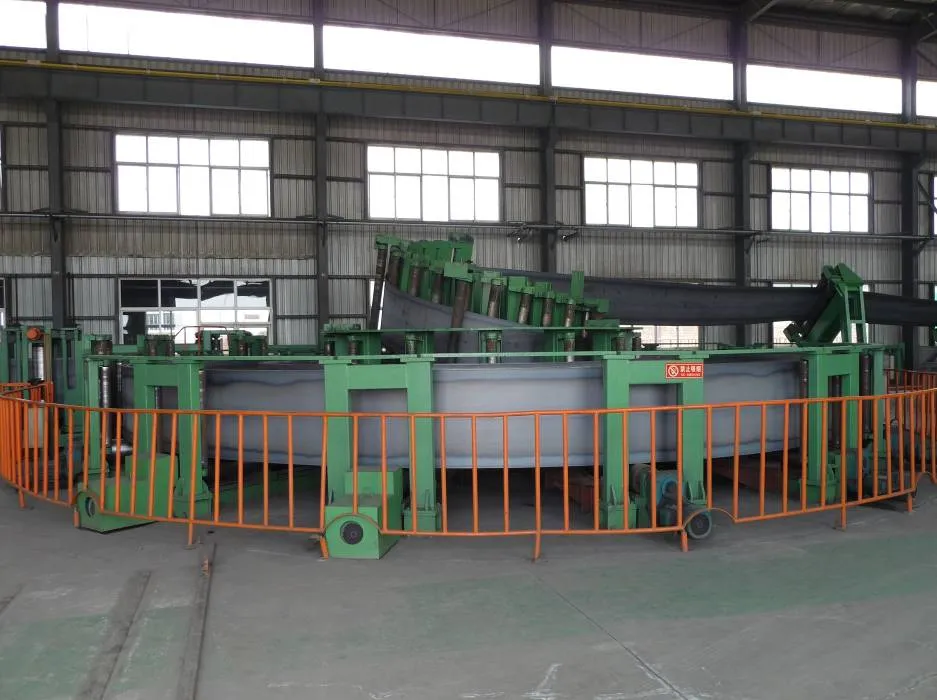Revolutionizing Metal Manufacturing with Modern Steel Pipe Production
The manufacturing industry has witnessed remarkable transformations over the decades, and one of the most significant advancements has been the development of the steel pipe making machine. This sophisticated equipment has fundamentally changed how we produce steel pipes, offering unprecedented efficiency and precision in metal fabrication. As industries continue to evolve, the demand for high-quality steel pipes has made these machines an indispensable asset in modern manufacturing facilities.
The steel pipe making machine represents a convergence of cutting-edge technology and industrial innovation, enabling manufacturers to meet the growing demands of various sectors, from construction to oil and gas. Understanding its advantages is crucial for businesses looking to enhance their production capabilities and maintain a competitive edge in the market.
Production Efficiency and Output Quality
Enhanced Manufacturing Speed and Consistency
One of the most compelling advantages of using a steel pipe making machine is its ability to maintain consistent high-speed production. Modern machines can produce hundreds of meters of steel pipes per hour, far surpassing traditional manufacturing methods. This increased production rate doesn't come at the expense of quality; instead, the automated processes ensure each pipe meets exact specifications.
The precision control systems in a steel pipe making machine monitor every aspect of the manufacturing process, from material feeding to the final product. This level of control results in remarkably consistent output, with minimal variations in pipe diameter, wall thickness, and surface finish.
Superior Quality Control and Reduced Defects
Advanced steel pipe making machines incorporate sophisticated quality control mechanisms that continuously monitor the production process. These systems can detect and address potential issues before they affect the final product, significantly reducing waste and ensuring higher quality standards. The automated inspection systems can identify microscopic defects that might be missed by human inspection alone.
The integration of computer-controlled operations means that each pipe produced meets stringent quality standards. This consistency is particularly crucial for industries where pipe failure could have severe consequences, such as in oil and gas transportation or high-pressure applications.
Cost-Effectiveness and Resource Optimization
Reduced Labor and Operating Costs
Implementing a steel pipe making machine can significantly reduce labor costs while increasing production output. These machines require minimal human intervention, typically needing only a few skilled operators to oversee the entire production process. This automation not only reduces direct labor costs but also minimizes the risk of workplace accidents and associated expenses.
The operational efficiency of modern steel pipe making machines extends to energy consumption as well. Advanced systems are designed to optimize power usage, resulting in lower energy costs per unit produced. This efficiency is particularly beneficial in regions where energy costs constitute a significant portion of manufacturing expenses.
Material Optimization and Waste Reduction
Modern steel pipe making machines are engineered to maximize material utilization. The precise control over the manufacturing process means less raw material waste, with sophisticated systems calculating the optimal use of steel sheets or strips. This efficiency in material usage directly translates to cost savings and improved sustainability.
The reduction in material waste also contributes to environmental sustainability, an increasingly important consideration in manufacturing operations. By minimizing scrap and optimizing material usage, companies can reduce their environmental footprint while maintaining high production standards.

Versatility and Customization Capabilities
Wide Range of Product Specifications
The versatility of steel pipe making machines is evident in their ability to produce pipes of various sizes, thicknesses, and specifications. Modern machines can be quickly adjusted to manufacture pipes ranging from small diameters for residential plumbing to large-diameter pipes for industrial applications. This flexibility allows manufacturers to serve diverse market needs without requiring multiple specialized equipment sets.
Advanced control systems enable quick changeovers between different pipe specifications, minimizing downtime and maximizing production efficiency. This adaptability is particularly valuable in markets where customer requirements frequently change or where custom orders are common.
Advanced Material Processing Options
Modern steel pipe making machines can process various grades of steel and other materials, offering manufacturers the flexibility to produce pipes for different applications. From standard carbon steel to specialized alloy pipes, these machines can handle diverse material requirements while maintaining consistent quality standards.
The ability to work with different materials extends to surface treatments and finishing options, allowing manufacturers to offer products that meet specific industry requirements. This versatility in material processing opens up new market opportunities and enables manufacturers to serve a broader customer base.
Long-Term Business Benefits
Market Competitiveness and Growth Potential
Investing in a steel pipe making machine positions companies for long-term success in the competitive manufacturing sector. The ability to produce high-quality pipes efficiently and consistently helps businesses maintain market share and expand into new markets. The improved production capabilities can lead to increased customer satisfaction and loyalty.
The advanced technology incorporated in these machines also helps manufacturers stay ahead of industry trends and meet evolving customer demands. This adaptability is crucial for long-term business sustainability and growth in the dynamic manufacturing sector.
Technology Integration and Future Readiness
Modern steel pipe making machines are designed with future technological advancements in mind. Many systems can be upgraded or modified to incorporate new features or capabilities as they become available. This future-ready approach helps protect the initial investment and ensures the equipment remains competitive over time.
The integration of digital technologies and Industry 4.0 capabilities in these machines enables manufacturers to collect and analyze production data, leading to continuous process improvement and optimization. This data-driven approach to manufacturing helps companies maintain their competitive edge and adapt to changing market conditions.
Frequently Asked Questions
How long does it take to see a return on investment for a steel pipe making machine?
The return on investment period typically ranges from 2 to 5 years, depending on factors such as production volume, market conditions, and operational efficiency. Companies with high production volumes and strong market demand often see faster returns on their investment.
What maintenance requirements should be considered for these machines?
Regular maintenance includes daily inspections, periodic calibration, and scheduled component replacements. Most modern machines have built-in diagnostic systems that help predict maintenance needs and prevent unexpected downtime. Establishing a comprehensive maintenance program is essential for optimal performance and longevity.
Can existing production lines be upgraded with new steel pipe making machine technology?
Yes, many manufacturers offer modular upgrade options that allow existing production lines to be enhanced with new technology. This approach can be more cost-effective than complete system replacement while still providing access to advanced features and improved efficiency.

